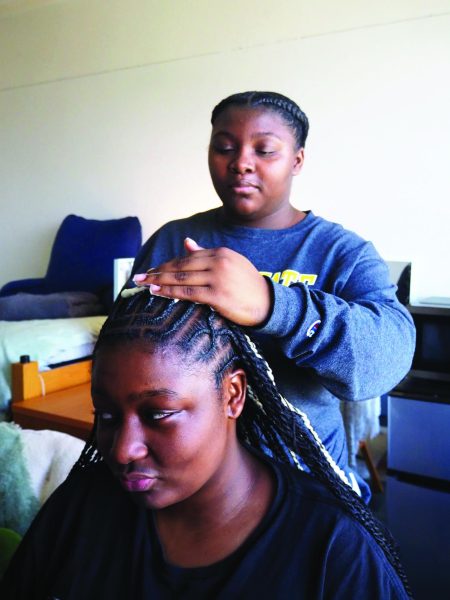“Long May She Reign” – The Life and Legacy of Her Majesty, Queen Elizabeth II
September 20, 2022
The life of Her Majesty, Queen Elizabeth II, was marked with castles, royal jewels, loyal subjects and even a Prince Charming, not unlike the classic childhood story. Queen Elizabeth’s light shone brightly around the world until Thursday, Sept. 8, when it went dark and ended the reign of Britain’s longest ruling monarch.
According to a National Geographic documentary entitled “Being the Queen: The Life of Elizabeth II,” Queen Elizabeth was taught how to be queen by her own father, King George V, after witnessing the abdication of King Edward VIII, her uncle, who surrendered the crown to marry an American divorcee. The Queen, then known as Princess Elizabeth of York, loved these training sessions with her father which inspired a very special and intimate bond that few others share.
According to the official Royal Family website, the Queen started serving her country as a Princess serving in the Auxiliary Territorial Service during World War II. She is credited as the first female royal to join the armed services as a full-time member, and eventually became the Colonel in Chief of the Fifth Battalion of the Royal Regiment.
According to the official British Royal website, Queen Elizabeth’s love and deep respect for the British armed forces was apparent throughout her 70 year reign. She honored thousands of soldiers and their families with Remembrance Day – a day meant to remember the fallen soldiers who lost their lives during battle while serving their country.
In the midst of the pandemic, Her Majesty paid tribute to the Unknown Warrior, a tomb in Westminster Abbey that not only honors the unnamed soldier buried there, but also those who have fallen during World War I.
The Queen ascended to the throne on June 2, 1953, after the death of her father while she was on a Commonwealth tour. According to the National Geographic documentary, when she learned of her father’s death, Elizabeth knew that her once private life would become public and that her life was now primarily dedicated to the crown and her country.
Her coronation was held at Westminster Abbey and was the first of its kind to be recorded and televised around the world. Prince Phillip, Duke of Edinburgh, helped coordinate the royal festivities and he was the first to pay his respects to Her Majesty (his wife) as the newly crowned Queen of England. Seventy years later, she would be honored for her life of service and dedication to her country in that very same hallowed hall.
Throughout her entire reign, Queen Elizabeth II held a neutral position as Britain’s monarch. She was considered to be the symbolic face of Parliament and head of the church and state. While carrying out her duties, the Queen felt it was her duty to be someone the nation could trust and rely upon during the darkest of times.
The Queen had the difficult job of balancing her role to protect the sanctity of the crown while dealing with the many royal family scandals over the years. During her reign, the British empire was transformed from a historical monarchy that was reclusive and private into the British Commonwealth image that we see today on TV and social media.
The Queen’s reign has been highly criticized, both during and after her death. “When she inherited in 1952… the British Empire was meaningfully in decline. India had become independent several years earlier and decolonization only accelerated from there,” WSC Associate History Professor Phillip Fox said.
While some may be highly critical of the Queen, others believe that she is a symbol of unity worldwide who inspired awe and admiration by many world leaders. “She was born to a royal family with a global empire and at her death, there isn’t a global empire. There hasn’t been for a very long time,” Fox said.
Whether people love or dislike the Queen and her legacy, there never has been a monarch who has ruled for seventy years during which the world changed greatly. “In right or wrong, I think she stayed the course in terms of what she thought the monarchy should be,” WSC professor of government, Joe Blankenau, said.
Queen Elizabeth’s reign provides a lesson of the importance of one’s duty to their nation, even in the hardest of times.









